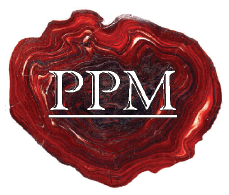PPM Research
Home » Faculties of Science » Departments » Geology » Research »The Palaeoproterozoic Mineralisation (PPM) Research Group is a research centre hosted within the Department of Geology at the University of Johannesburg. Its mandate is to support research, training and teaching for UJ staff, students and visiting professors that fall beyond the scope of economic geology. Another mandate is to provide a platform to share research results and ideas with the broader geoscience community through the weekly PPM talks.
The PPM Research Group was originally established in the early 2000s by Professor Nic Beukes to focus on Palaeoproterozoic ore-forming processes within southern Africa and other parts of the Earth. With the original economic geology focus of the PPM Research Group acting as the partial basis for the establishment of the Department of Science and Innovation – National Research Foundation Centre of Excellence for Integrated Mineral and Energy Resource Analysis (DSI-NRF CIMERA) (https://cimera.co.za/), the only economic geology centre of excellence in South Africa, the PPM Research Group changed its mission to support training, teaching and research on topics falling outside the scope of DSI-NRF CIMERA. These broader topics include, but are not limited to, structural geology, igneous petrology, geochronology, paleomagnetism, stratigraphy, sedimentology, and the age dating of hominid fossil sites. The following are examples of projects that have been supported by the PPM Research Group in the last three years:
- Improved sample preparation and age dating of both detrital and primary minerals through U-Pb geochronology at the Department of Geology at the University of Johannesburg
- The Proterozoic crustal evolution of southwestern Angola and northwestern Namibia
- The petrochemistry and geochronology of the Ilesha and Igarra Metasedimentary (Schist) Belts of Nigeria
- The timing and evolution of the Lefika la Noka tufa site, Cradle of Humankind
- The age and origin of mafic dykes and sills of the Ghaap Plateau (Transvaal Supergroup) and the Gamagara Formation (Keis Supergroup) in Griqualand West
- A machine-learning approach to constrain the pressures and temperatures of crystallisation of the Kunene Complex (Angola/Namibia)
- The use of LA-MC-ICPMS for sourcing of natural materials, with a focus on Southern African gemstones
- Refining the youngest age of deposition of several formation of the Cape Supergroup by LA-ICP-MS U-Pb age determination of detrital zircons
- New geochronological, paleomagnetic and compositional constraints on magmatism within the Tadpatri Formation (Cuddapah basin), Southern India
- The upgrading of the milling room at the Department of Geology at the University of Johannesburg
Details of specific PPM research projects are published in our annual report:
- 2017/2018 – PPM Annual Report
- 2016 – PPM Annual Report
- 2015 – PPM Annual Report
- 2011 – PPM Annual Report
- 2010 – PPM Annual Report
- 2009 – PPM Annual Report
In addition to research, teaching and training support, the PPM Research Group also hosts the weekly PPM Seminars at 14:00 on Tuesdays. These talks are presented in person at the Department of Geology at UJ, as well as online, and provide a platform for UJ staff, UJ students, researchers from other institutions, as well as industry experts to present their latest work. To be added to the mailing list for these talks, contact Herve Wabo (hwabo@uj.ac.za).
The PPM Research Group is mainly funded by the University of Johannesburg University Research Committee (URC) and Prof Bertus Smith acts as it director, with Dr Herve Wabo providing administrative support. Former directors include Professor Nic Beukes, Professor Jens Gutzmer and Professor Jan Kramers.

